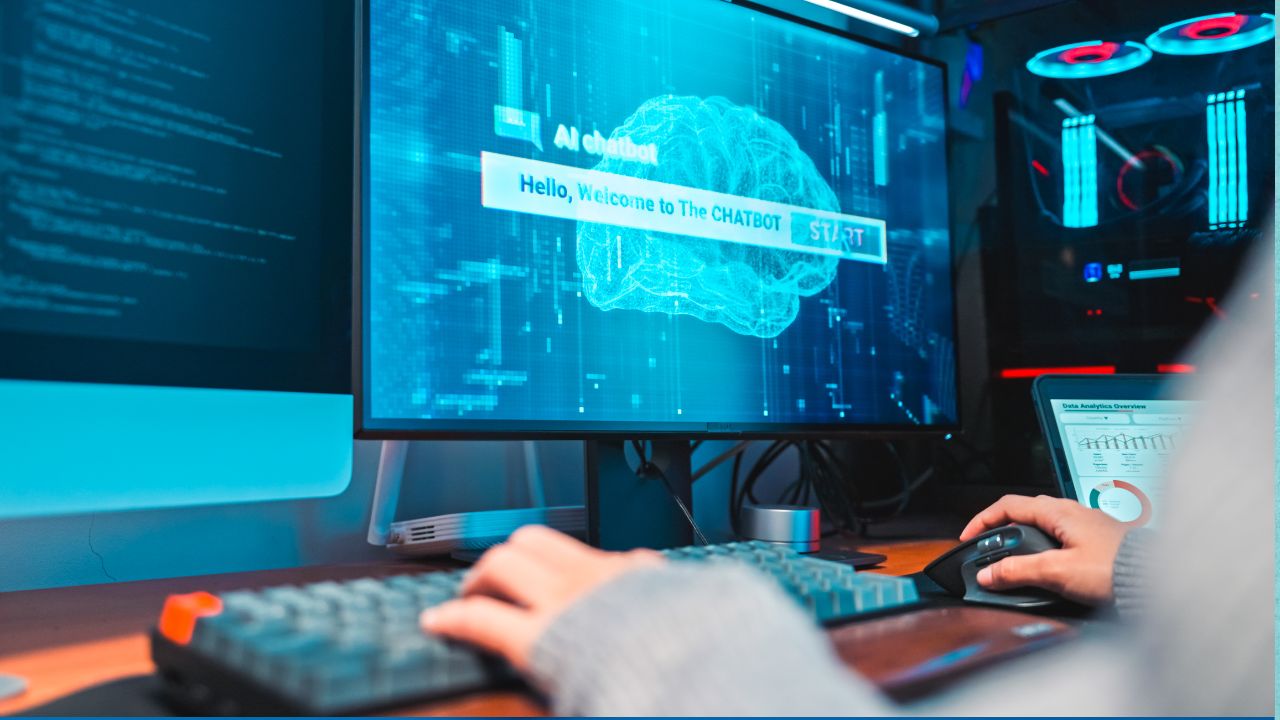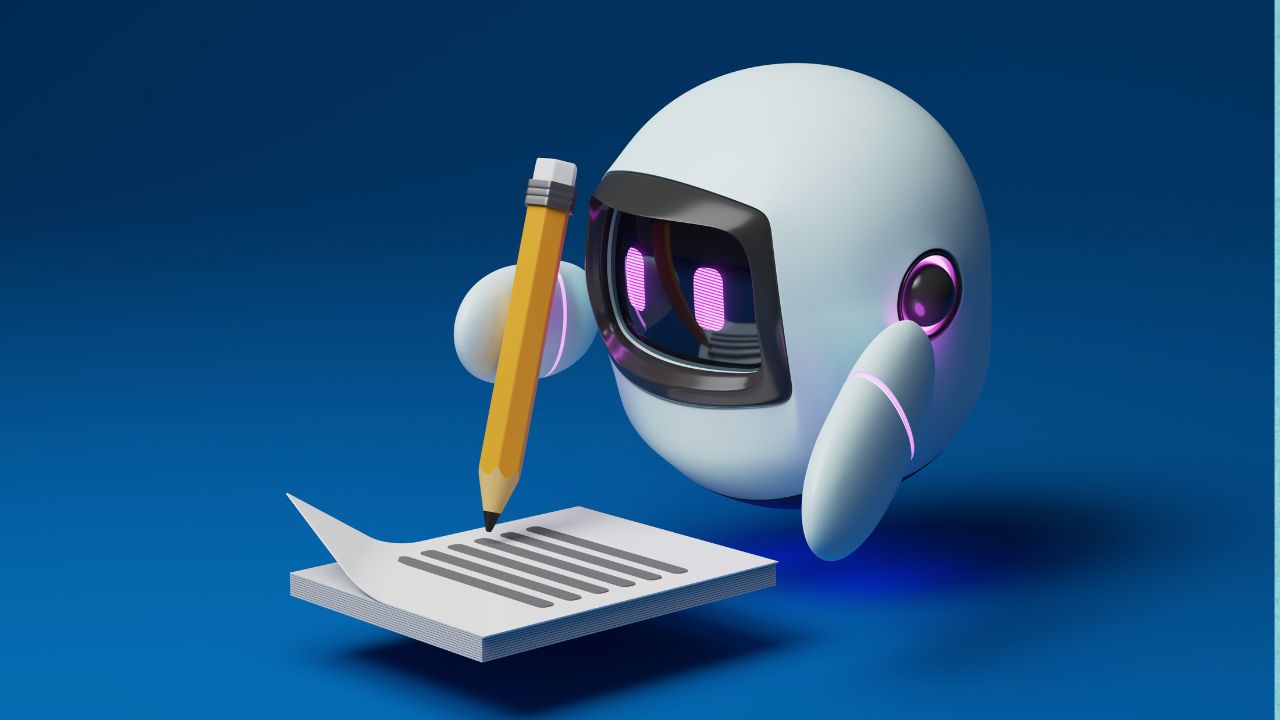- By Sakshi Gupta
- Wed, 20 Sep 2023 04:31 PM (IST)
- Source:JND
AI and ML Technologies: Due to the incorporation of artificial intelligence (AI) and machine learning (ML) technologies, the conventional educational system is about to undergo a revolutionary phase. These advancements have fundamentally altered how teachers and students both teach and learn, allowing for the creation of personalised learning experiences that are tailored to the needs and interests of each individual.
This article provides a thorough description of the core aspects of learning that AI and ML enhance, including personalisation, efficient assessment methods, and continuing skill growth. It investigates the role of AI-powered chatbots and virtual assistants in student support services while predicting future advancements in ed-tech that promise to make education more equitable, accessible, and adaptable on a global scale.
STEMROBO Technologies co-founder Anurag Gupta discusses the advancements in machine learning and artificial intelligence (AI) in educational technologies. He discusses how these technological advancements are altering the way that education is delivered, affecting the futures of students, and emphasizing the greater interest that venture capitalists (VCs) have in investing in this developing sector.
How have AI and ML technologies revolutionized the traditional education system, and what key aspects of learning do they enhance?
- AI and ML technologies have brought about a significant transformation in the traditional education system, enhancing various crucial aspects of learning. These advancements have revolutionized personalized learning, making education more accessible and tailored to individual students. Through adaptive learning, these technologies dynamically adjust content to match a student's pace and comprehension, ensuring a more effective learning experience. Additionally, they enable automated grading, which not only saves educators valuable time but also allows for faster and more constructive feedback.
Furthermore, these technologies have expanded accessibility to education. Through online platforms and virtual classrooms, learners from diverse backgrounds and geographic locations can access quality education. Language barriers are also addressed through real-time translation tools, ensuring that knowledge is inclusive and globally accessible.
Educators can use analytics to identify struggling students early, enabling timely interventions and personalized support. This data-driven insight also informs curriculum development, allowing institutions to refine teaching methods and materials for optimal learning outcomes.
STEMROBO not only provides AI and ML curriculums but also empowers schools with cutting-edge resources and tools. Our curriculum is designed to foster critical thinking, problem-solving, and creativity, aligning perfectly with the demands of today's rapidly evolving world. By integrating AI and ML into the education system, STEMROBO equips students with practical skills and knowledge that are highly relevant in today's technology-driven landscape.
What role do personalized learning algorithms play in adapting educational content to individual student needs, and how does this improve the learning experience?
- Personalized learning algorithms play a pivotal role in tailoring educational content to the unique needs of each student. These algorithms utilize a combination of data analytics and machine learning to assess a student's learning style, pace, strengths, and areas that require additional focus. By processing this information, the algorithm can then curate a customized curriculum that aligns with the student's individual capabilities and preferences.

AI and ML Technologies (Image Credit: Canva)
This adaptation significantly enhances the learning experience in several ways. Firstly, it fosters a sense of ownership and empowerment in students. When they perceive that the material is specifically designed to suit their learning profile, they are more likely to engage actively and take responsibility for their education. This personalized approach also promotes a deeper level of understanding and retention. Since the content is aligned with the student's unique cognitive processes, it resonates more effectively, leading to a stronger grasp of the learning material.
How are AI-powered chatbots and virtual assistants transforming student support services, such as answering queries, providing tutoring, and offering career guidance?
- AI-powered chatbots and virtual assistants are revolutionizing student support services in profound ways. They act as round-the-clock, easily accessible resources that cater to a wide range of student needs. Firstly, in terms of answering queries, these AI-driven systems provide instant responses to common questions regarding administrative processes, course details, and campus resources. This immediate access to information saves students valuable time and reduces the frustration associated with waiting for responses.
Moreover, in the realm of tutoring, AI-powered assistants offer personalized, on-demand help. These systems are equipped to assess a student's learning gaps and provide targeted explanations and practice exercises. This not only supplements traditional tutoring services but also ensures that students receive tailored support precisely when they need it, contributing to enhanced comprehension and academic performance.
ALSO READ:- Skill Development: How Early Stage Skilling Empowers Graduates; Experts Explain
In terms of career guidance, AI-powered assistants leverage data analytics to offer tailored recommendations based on a student's interests, strengths, and career goals. They can provide insights on relevant courses, internships, and job opportunities, empowering students to make informed decisions about their academic and professional pathways.
In what ways do AI and ML contribute to more efficient and data-driven assessment methods, allowing educators to gauge student progress and tailor their teaching strategies accordingly?
- AI and ML have revolutionized assessment methods in education by introducing efficiency and data-driven precision. These technologies enable adaptive testing, where assessments dynamically adjust based on a student's responses. This approach provides a more accurate and nuanced evaluation of a student's knowledge and skills. By analyzing the patterns in a student's answers, AI can identify specific areas of strength and weakness, allowing educators to focus on tailored interventions.
Moreover, AI-driven assessment tools generate comprehensive data sets that offer valuable insights into student progress. These analytics provide a granular view of individual performance, highlighting trends and areas in need of improvement. This data-driven approach empowers educators to make informed decisions about instructional strategies. For instance, if a significant number of students struggle with a particular concept, the teacher can adjust their teaching methods to provide additional support in that area.
Additionally, AI and ML facilitate timely feedback. Automated grading systems can swiftly evaluate assignments and assessments, allowing students to receive prompt feedback on their work. This immediate feedback loop is crucial for reinforcing learning and addressing misconceptions promptly.
How is AI contributing to the development of lifelong learning platforms, and what potential benefits does this hold for students in an ever-evolving job market?
- AI is playing a pivotal role in shaping lifelong learning platforms, revolutionizing the way individuals acquire new skills and knowledge throughout their careers. These platforms leverage AI to offer personalized learning experiences, tailoring content to an individual's specific interests, prior knowledge, and learning pace. This adaptability ensures that learners receive the most relevant and effective education, promoting continuous growth and development.
One of the significant benefits of AI-powered lifelong learning platforms lies in their ability to keep pace with the rapidly evolving job market. As industries and technologies change, these platforms can quickly adapt their content to incorporate the latest skills and knowledge needed for emerging roles. This ensures that learners remain competitive and relevant in their respective fields, even as job requirements evolve.
AI is transforming lifelong learning platforms into dynamic, personalized, and adaptable resources. This not only equips students with the skills they need to thrive in an ever-changing job market but also promotes a culture of continuous learning and professional development, ultimately contributing to individual and societal progress.
What are the anticipated advancements in AI and ML within ed-tech, and how might these innovations continue to benefit the education and skill development of students globally?
- Anticipated advancements in AI and ML within ed-tech are poised to revolutionize education and skill development on a global scale. These innovations will continue to benefit students by providing more personalized, adaptive, and engaging learning experiences. One key area of advancement is the refinement of personalized learning algorithms. These algorithms will become even more sophisticated in assessing individual learning styles, preferences, and progress. This will result in even more tailored educational experiences, ensuring that students receive the content and support that best suits their needs.
AI-powered assessment methods will become more nuanced and precise. Adaptive testing will evolve to offer even more accurate measures of a student's knowledge and skills. This will enable educators to identify areas for improvement more effectively and provide targeted interventions.
The anticipated advancements in AI and ML coupled with the contributions of edtechs like STEMROBO, are poised to empower students globally with the skills and knowledge they need to thrive in a rapidly evolving educational landscape and job market. STEMROBO is playing a significant role in the ed-tech industry. It is equipping students with 21st-century skills by integrating hands-on STEM learning experiences with robotics and AI. By engaging students in practical, project-based learning, STEMROBO is preparing them for the anticipated advancements in AI and ML. This approach not only fosters a deeper understanding of these technologies but also cultivates problem-solving, critical thinking, and collaboration skills essential for success in the digital age.

